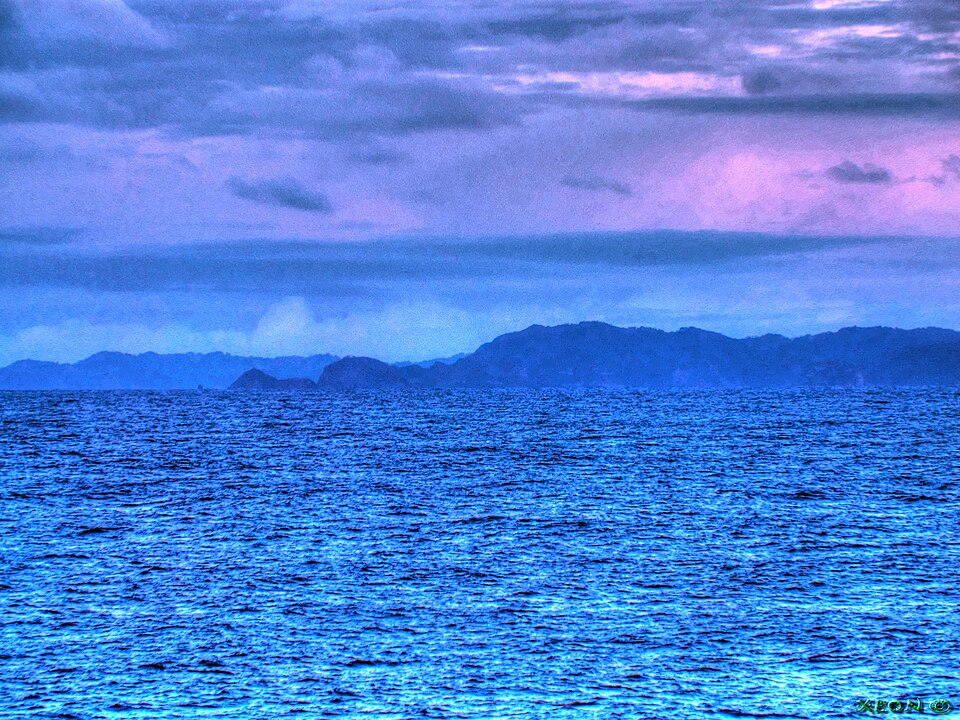The island of Guafo in southern Chile is known for its rich fauna. Photo: Wikipedia (CC BY 3.0 Deed)
(Santiago de Chile, November 19, 2023, pressure/the citizen).- The island located south of Chiloé Guafo has biological and ecological as well as historical, social and cultural riches that make it a unique place that deserves to be preserved. This was emphasized by experts who took part in the expert workshop for the draft of the planned protected area “Where did they die?” have participated. The workshop was organized by the “Wafo Wapi Historic Protected Area” association and WWF Chile.
The ten Huilliche communities from Quellón, with the support of the Regional Fisheries, WWF Chile and the Municipality of Quellón, are submitting an application for a coastal protected area for indigenous peoples ECMPO (Espacio Costero Marino de Pueblos Originarios) on the island of Guafo. This proposal must be examined by the Regional Commission for the Use of Coastal Areas (CRUBC) in the southern Chilean regions of Los Lagos and Aysén.
The aim of the workshop was to deepen the biological and cultural value of the island at various interrelated levels, in order to use it as input or technical support in the development of the ECMPO’s management plan for Wafo Wapi.
“This event was very enriching, we were able to get to know a lot of data and information as well as new actors, which strengthens our ECMPO application and ourselves and also reinforces our traditional knowledge through scientists so that we can join forces. We are pleased that more and more people are joining the Wafo Wapi initiative, all pulling together to bring the integrative project to a successful conclusion,” said Cristian Chiguay, the Lonko (chief) of Yaldad and the leader of the initiative Wafo Wapi.
Tailwind for protection initiative
Marcos Salas, President of the 1st Non-Industrial Fishing Union of Quellón, said he felt “strengthened by what we have learned and by the information for the development of the management plan and the existing alternatives. Although there are still many things to work on, I am very happy that we are continuing to expand this initiative.”
And Yacqueline Montecinos, Marine Biodiversity and Ocean Policy Coordinator at WWF Chile, emphasized that “the perspective of the experts and the data presented further support this proposal that drives the communities and also us: this is the great natural and cultural wealth of the island Guafo and the urgent need to protect it”.
The workshop began with a welcome by Lonko Cristian Chiguay, who together with Jacqueline Montecinos from WWF Chile presented the most important aspects of the ECMPO application. The latter was also in charge of a presentation on large marine mammals, highlighting the presence of various species of whales in Guafo, including southern right whales, humpback whales, blue whales, sei whales and orcas. She also highlighted the role they play in fisheries productivity, particularly through their diet, as they consume krill and then excrete iron into the sea.
Large abundance of whales, seals and seabirds
Afterwards, marine biologist and doctor of science Héctor Pavés, director of the doctoral program in nature conservation and biodiversity management at the Universidad Santo Tomás, spoke about marine mammals in Guafo, especially seal species such as the maned seal or the South American fur seal.
Afterwards, Ronnie Reyes, marine biologist, ornithologist and doctor of science, spoke about seabirds and particularly highlighted the dusky shearwater, which forms the world‘s largest breeding colony of migratory birds on the island, with up to four million pairs recorded per season.
A small Galapagos in southern Chile
Vivian Pezo, representative of the sampling office (IFOP) in the city of Ancud on the island of Chiloé, spoke below. She presented her institution’s work on fisheries resources, as well as its research areas and the objectives of its observation programs. “We have enough relevant information to support this initiative, so we were very happy to be included and contribute to this event,” said the expert. “Hopefully the outcome will be what we all want, which is to get an ECMPO.” She noted that this is the first time that the IFOP has participated in a process of this kind.
Carlos Vargas, engineer with a master’s degree in aquaculture and associated researcher at the Universidad de Chile, spoke about the traceability of fishery resources and Elías Notley from Gala Tour Austral reported on the experiences of his ecotourism project in Puerto Gala. The Director of the Environmental Defense Fund (EDF) for Chile, Sergio Palmas, reported on the experience of managing and monitoring the Warning, Forecasting and Observation System (SAPO) implemented in Ecuador, Peru and Chile with the support of the EDF.
At the end, history teacher Sebastián Campos from Ancud presented his bachelor’s thesis, in which he dealt with the history of the Mapuche population. The indigenous Mapuche group historically spread from the Araucanía region in what is now Chile to Argentina. In both countries, Mapuche groups are now fighting for their territories and their independence. Extreme, state-legitimate violence by police units and criminalization continue to occur. The language of the Mapuche is Mapudungun. Mapu is called "Earth" or "Land" and Che is called "People".
” href=” data-gt-translate-attributes=”[{” attribute=””>Mapuche-Williche und der Kontinuität der maritimen Lebensweise auf der Insel Guafo befasste.
